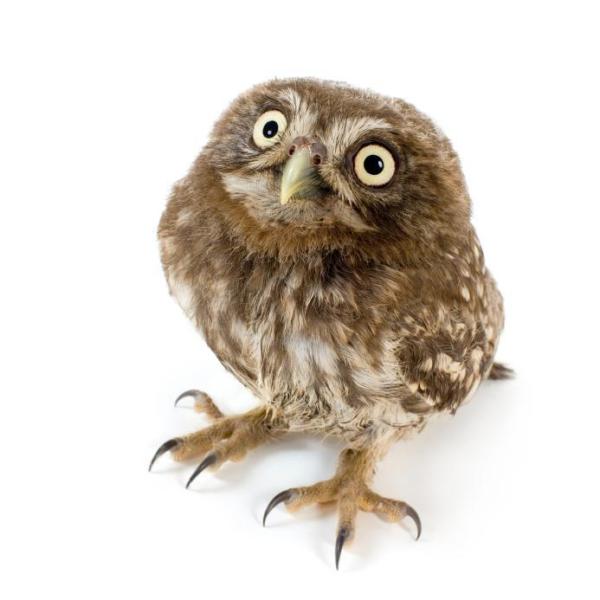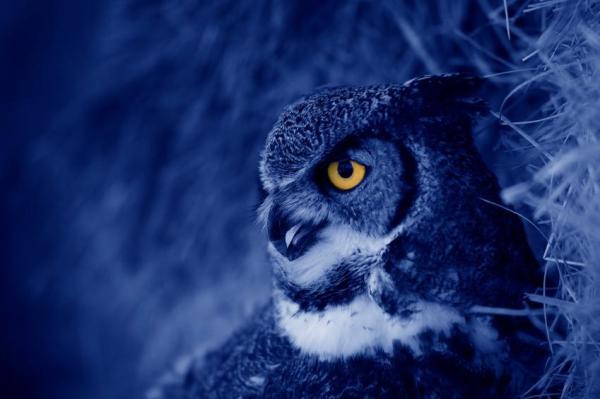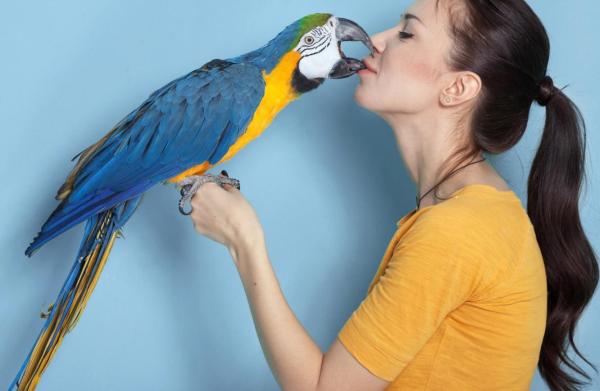
Humans have always been in contact with the animal kingdom, and while it may be true that modern society differs greatly from the old days, we are unable to completely cut ties with nature and animals. A good example of this is the number of people who choose to share their homes with an animal.
The world of pets is no longer limited to just dogs and cats, although they remain the pets par excellence. Nowadays, people welcome numerous different animals into their homes, including mice, turtles, snakes, ferrets, chinchillas, and so on.
There are increasing numbers of animals that can be considered as domestic pets. But can any animal become a pet? Does anything go? In this AnimalWised article, we'll discuss keeping owls as pets with our guidelines and general tips.
The nature of owls
Their heart-shaped head and large, piercing eyes make owls enigmatic and mysterious animals, and it's no surprise that many cultures have found them fascinating, even otherworldly. As beautiful and enthralling as they are, we must discuss their nature to assess whether owls are suitable pets.
There are over 200 species of owls, all within the order of the Strigiformes. Owls live all over the globe apart from Antarctica. Despite their great variety, all owls have common characteristics that need to be mentioned.
Owls are nocturnal animals, which means that they are mostly active at night. Except for a couple of diurnal species, it is difficult to fully appreciate owls during daytime hours. It is precisely for this peculiar characteristic that the owl has a highly developed sense of sight, with optimal night vision. Similarly, the owl also has an extraordinary sense of hearing.
Owls are solitary and very territorial animals; flying predators with strong talons and beak, which help them to hunt for their prey. Their feathers help them fly slowly, in a very controlled and silent manner. Depending on the species, owls feed on small mammals, reptiles, birds, fish, and insects. Therefore, owls are carnivorous animals.
Additionally, the cultural symbolism of owls varies widely. In some traditions, they are seen as symbols of wisdom and knowledge, while in others, they are associated with mystery and the unknown. This duality further adds to their allure and the fascination they evoke in people worldwide.

Can you keep an owl as a pet?
The following statement is undeniable: No matter what you read in the Harry Potter books, the owl is a wild animal and it is not suitable to be kept in captivity.
However, if you're still considering the possibility of getting an owl as a pet, it is important that you first get to know the following information:
- Caring for an owl requires a person with experience in handling these birds. It is not an animal that will accept trial and error in its maintenance.
- Owls don't adapt well to changes, and a pet owl will make it very difficult for you to go on holidays. They won't allow other people to look after them, meaning that they need to accompany you.
- An owl needs to fly every day, so you must have sufficient space, time, and dedication to allow it to do so.
- Feeding an owl requires keeping whole, dead animals at home. Not only do you need to purchase them, but you also need to conserve them, so you may need to buy an extra freezer. The owl may throw up animal viscera, so you should remove them beforehand.
- An owl is a wild bird of prey. This means that it will probably show aggressive behavior, and nothing is going to change this.
- Owls continuously call at night during the mating season, making it difficult for anyone to sleep at home.
These aspects make it clear that owls should not be considered pets. However, we have even more information to shed on the matter.
Furthermore, it's crucial to understand the legal implications. In many countries, capturing and keeping owls as pets is illegal. They are protected under various wildlife conservation laws, and acquiring them without proper permits can lead to legal actions. This adds another layer of complexity and responsibility when considering owls as pets.

The owl, a responsibility for life
A small owl can live more than 20 years, but a large owl can live for even longer, even up to 50 years. You must consider that an owl's long lifespan means a long responsibility and huge commitment from the owner, that is, you. Can you ensure its well-being for decades?
In addition, an owl raised in captivity can't be later released into the wild, since it wouldn't be able to survive in such an unknown and harsh environment. For instance, it could have huge problems in finding food.
All in all, it is possible to get an owl as a pet, but it is not recommended at all. Any animal lover should rule out that possibility. Owls aren't suited to captivity - they need to fly free.
Moreover, the ethical considerations of keeping a wild animal in a domestic environment cannot be ignored. Owls are not domesticated, and their needs are vastly different from traditional pets. Their well-being can be severely compromised in a home setting, making it a significant moral dilemma for those considering them as pets.

Are you passionate about birds?
Having an owl as a pet isn't a good idea, and neither is it the most sensible option. Many bird lovers end up causing these wild animals to die of sadness and bad adaptation to inappropriate environments. However, if you do have an owl as a pet, we'd love to hear your experience, guidelines, and tips in the comments section.
However, this doesn't mean you can't enjoy the company of birds. Discover how to attract birds to your garden in four steps and what are the 5 best singing birds, for instance. If you really want to see owls in real life, contact with a local falconry.
Additionally, engaging in birdwatching activities or joining bird conservation groups can provide fulfilling alternatives. These activities not only help you connect with nature but also contribute to the conservation of bird species, including owls, in their natural habitats.

If you want to read similar articles to Owls as Pets: Guidelines and General Tips, we recommend you visit our What you need to know category.